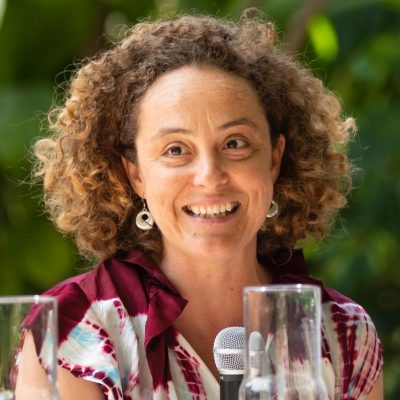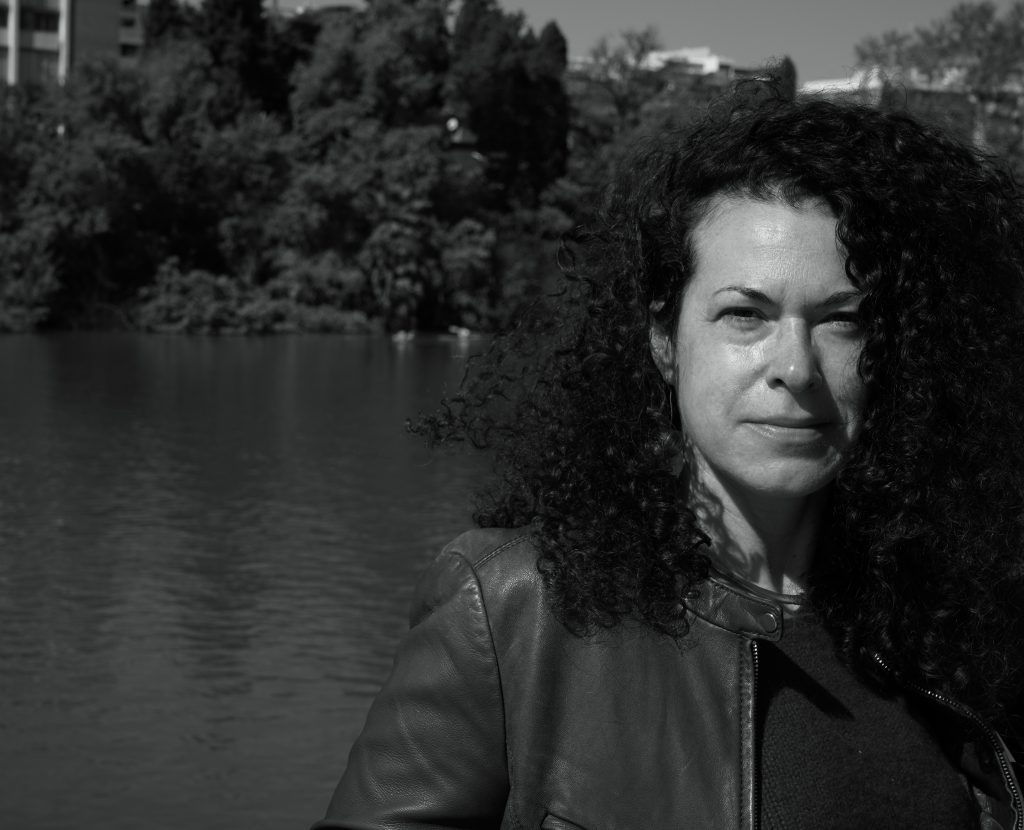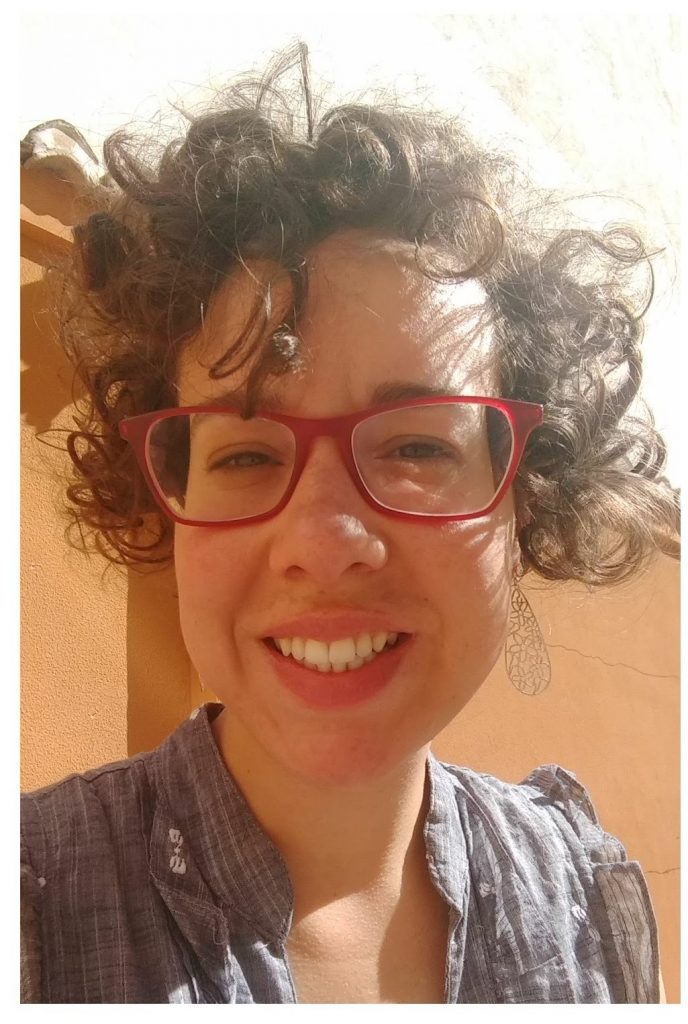TEAM
The BINASEX team is both international and interdisciplinary, covering the fields of constitutional law, jurisprudence, European law, international human rights law, anthropology, cultural gender studies and political science and theory. Its interdisciplinary character presides over both its Research Team, made up of tenured academics at a Spanish university, and its Working Team.
RESEARCH TEAM

Blanca Rodríguez
Principal Researcher
Blanca Rodríguez-Ruiz is Associate Professor of Constitutional Law at the University of Seville. Ph.D. in Law from the European University Institute (Florence, Italy); Post-doctoral von-Humbold research scholar at Frankfurt University; visiting scholar at the Yale Law School and the Gender Institute of the London School of Economics. Her research approaches questions related to fundamental rights, democratic citizenship and state theory from a feminist perspective. She is involved in a number of post-graduate programmes on gender studies, has participated in various research projects and has led projects on Immigration and Political Participation (2011, Andalousian Research Plan) and on Democracy and Political Participation: Redefining Democratic Citizenship (2015, National Research Plan -with Manuel Carrasco Durán). She currently co-ordinates the research group Disadvantaged Groups and Fundamental Rights, as well as the Binasex Research Project. She is responsible for the Legal Clinic on Fundamental Rights of the University of Seville. In 2018 she was awarded the Meridiana Prize for gender research by the Andalusian Institute for Women.
Personal webpage:
https://personal.us.es/blancarr/

Assumpta Sabuco
Researcher
Assumpta Sabuco i Cantò is Associate Professor of Social Anthropology at the University of Seville. Andalusian Prize for Studies in Social Sciences (1991); Extraordinary Doctorate Award from the University of Seville (2003); National Prize for Ethnology Marqués de Lozoya (2003); Second Prize for studies in Globalisation, Culture and Social Transformations from the University of Venezuela (2005). She carries out her research in the fields of gender, ethnicity, co-education and sexuality, where she has published extensively, participated in a number of national and international events and been part of various research projects. These include projects on gender and sexuality, such as Immigrant women and prostitution in Andalucía (2011), in co-operation with the Ibero-American Laboratory for the Socio-Historic Study of Sexualities (Laboratorio Iberoamericano para el estudio sociohistórico de las sexualidades -LIESS), and the Analysis of sexual dissidence in Andalucía during Franco (FEM 2011-27295). She is responsible, as coordinator and teacher, for the subject Anthropology of Sexuality within the Degree on Anthropology at the University of Seville and is part of the Research Group OUT-arquías (Hum 853). Her most recent research analyses trans social movements and their transformations, mostly through digital ethnographies, on account of the lockdown.

ANA VALERO
Researcher
Ana Mª Valero Heredia is Associate Professor of Constitutional Law at the University of Castilla-La Mancha. She has been a visiting scholar at the Universities of Buenos Aires, La Sapienza di Roma and Northwestern University de Chicago, among others. Her research centres on fundamental rights, including women’s sexual and reproductive rights, free speech, hate speech, freedom of conscience and multiculturalism. Among her main publications are “Homofobia y discurso del odio desde una perspectiva constitucional”, Estado de Derecho y discriminación por razón de género, orientación e identidad sexual, Cizur Menor: Aranzadi, 2014, pp. 284-297; “Los discursos del odio. Un estudio jurisprudencial”, Revista Española de Derecho Constitucional, 2017, pp. 305-333. She has led a research project financed by the University of Castilla-La Mancha, on Women and double discrimination (2011).

Víctor Vázquez
Researcher
Víctor J. Vázquez Alonso is Associate Professor of Constitutional Law at the University of Seville. PHD in Law from the University of Salamanca; visiting researcher at different prestigious universities, such as Cardozzo, Fordham, Paris or Bolognia; visiting lecturer at various academic institutions, including the universities of Münster, El Salvador (Argentina), Iberoamericana (Colombia) or Sergio Arboleda (Colombia). His main lines of research include Church-State relations and religious freedom, Media Law and New Technologies, Constitutional Theory and Federalism. His most relevant publications include Laicidad y Constitución (Centro de Estudios Politicos y Constitucionales, 2012); Sobre la libertad de expresión y el discurso del odio (dir. with Lucía Alonso Sanz, Athenaica, 2017); “La neutralidad del Estado y el problema del ‘Government Speech’” (Revista de Estudios Políticos, 2017).
WORKING TEAM

MARJOLEIN VAN DEN BRINK
Marjolein van den Brink is a lecturer at the Utrecht University School of Law, since 2014 at the Netherlands Institute of Human Rights (SIM), within the International and European Law section (IER). Her teaching and research cover foundational legal questions, international, European and national equality law, human rights and gender issues in a broad sense, with a particular focus on personal status and family law issues. She co-edited the special issue of the International Journal on Gender, Sexuality and Law, on ‘Bodies, identities, and gender regimes: Human rights and legal aspects of gender identity registration’. She has written various commissioned reports on legal gender and gender registration. With Peter Dunne (University of Bristol School of Law) she wrote ‘Trans and Intersex Equality Rights in Europe’ (2018), commissioned by the European Equality Law Network. Her latest report, on how to reduce instances of ‘unnecessary sex registration’, was sent to parliament in July 2020. Between 2000 and 2009 she was commissioner of the Dutch national equality body (Commissie gelijke behandeling, now the Dutch national human rights institute). She is an executive editor of the Netherlands Quarterly on Human Rights and participates in the UCERF research group (Utrecht Centre for European Research into Family Law).

OLGA BURGOS
Olga Burgos García is a practising lawyer specialised in family law, gender violence and antidiscriminatory law, a member of the Human Rights Commission of the Sevilla Bar Association and a co-founder therein of a pro-bono legal aid service specialised in hate crimes. She has a post-graduate degree on European Law (Université Libre de Bruxelles-Universidad de Sevilla) and a Master’s degree on Gender Studies (Universidad Pablo de Olavide, Seville), and is currently a Ph.D. student at the Law School of the University of Seville, with a project on Gender identity as a fundamental right (La identidad de género como derecho fundamental). Olga acts as external tutor at the Legal Clinic on Fundamental Rights of the University of Seville.
Personal webpage:
https://olgaburgosabogada.com/

LAURA FLORES
Laura Flores Anarte is a lecturer of Constitutional Law at the University of Seville. She holds a Master’s Degree in Human Rights, Interculturality and Development (Universidad Pablo de Olavide, Seville) and a Ph.D. in Law (Universidad Pablo de Olavide) with a thesis on Public legal policies on gender in a context of economic crisis. She has been a visiting researcher at the Center for the Study of Women and Society, City University of New York (2016), and the Centro de Estudios Políticos y Constitucionales, Madrid (2019). Her research introduces a gender perspective on issues related to fundamental rights and public policies. Her work on assisted reproduction earned her the Rosario Valpuesta research prize (Universidad Pablo de Olavide) in 2016 and was published as the book Técnicas de Reproducción Humana Asistida: ¿mercantilización de la maternidad o empoderamiento femenino? (Tirant lo Blanch).

ANA GALDÁMEZ
Ana Galdámez Morales is a Ph.D. student at the Department of Constitutional Law at the University of Seville. She holds a Degree in Journalism, a Law Degree and a Master’s Degree in Constitutional Law, all from said University. She has published on free speech, hate speech, freedom of information, fake news and social networks. See her articles “Posverdad y crisis de legitimidad: El creciente impacto de las fake news”, in Revista Española de Transparencia, vol. 8, 2019, pp. 25-44; “M´Bala M´Bala c. Francia: la singularidad del negacionismo en Europa”, in Revista Jurídica de la Universidad Autónoma de Madrid nº36, 2017, pp. 219-230. She has been part of several research projects, including one on Institutional Neutrality and the Constitutional State (La neutralidad institucional en el Estado Constitucional). Her thesis focuses on Democracy and Misinformation.

DAMIÁN GONZÁLEZ-SALZBERG
Damian González-Salzberg is a Senior Lecturer in International Law and Human Rights at the University of Birmingham (UK). An important part of his research focuses on the regulation of gender and sexuality through human rights, which has been published in leading academic journals, including Modern Law Review, American University International Law Review and Northern Ireland Legal Quarterly. He is the author of Sexuality and Transsexuality under the European Convention on Human Rights (Hart, 2019) and the co-editor of Research Methods for International Human Rights Law (Routledge, 2019).
Personal webpage: https://www.birmingham.ac.uk/staff/profiles/law/gonzalez-salzberg-damian.aspx

SEBASTIÁN LÓPEZ
Pablo Sebastián López Hidalgo lectures Constitutional Law at the Universidad Azuay-Ecuador, where he coordinates the Master’s programme on Constitutional Law and is Vice-Dean of the Faculty of Legal Science. Invited Professor at the Universidad Andina Sucre-Bolivia and the Universidad Andina Simón Bolívar-Quito, where he took a Master’s Degree in Constitutional Law. Ph.D. in Law from this University and the University of Sevilla. He has been counselor at the Constitutional Court of Ecuador and a lawyer at the Procurator-General Office in Ecuador. His research focuses on constitutional justice, democracy and the protection of fundamental rights, including gender violence and the rights of LGTBI groups. He is currently post-doctoral researcher at the Universidad Andina Simón Bolívar-Quito,

ANNA LORENZETTI
Anna Lorenzetti is Associate Professor in Constitutional Law at the University of Bergamo (Department of Law) where she teaches Gender Analysis and Anti-discrimination law, Gender Violence: legal and psycho-social issues, and Policies for the Integration. Her research interests lie on European Anti-discrimination law and Equality, Gender and the Law, LGBTI rights, Social rights. She has published extensively in those areas, including the monographs: Diritti in Transito. La condizione giuridica delle persone transessuali (FrancoAngeli, 2013), on legal situation of transgender people; Hard Work. LGBTI Persons in the Workplace in Italy (ETS, 2016); and articles on homoparentality. She is a member of the Research Centre Politesse Politics and Theories of Sexuality, University of Verona, and of the Editorial Board of Diritto Pubblico comparato ed europeo.

LAURA MARTÍNEZ
Laura Martínez-Jiménez, PhD in Social Sciences from Pablo de Olavide University (Seville), specialises in feminist cultural studies. She is a lecturer in Rey Juan Carlos University of Madrid. Her work focuses on the intersections of (post)feminism, popular culture, (gender) identities, precariousness and neoliberal capitalism. Laura has been a visiting scholar at the UCD Equality Studies Centre (Dublin) and a lecturer at the School of Business Management and Administration (Universidad Pablo de Olavide) and the School of Communication (Universidad de Sevilla). She is a member of the GEP&DO Observatory, the EcoEcoFem Research Group and the Spanish Association of Communication Research. She is currently a lecturer at the School of Humanities at the Pablo de Olavide University.
Personal webpage: https://www.researchgate.net/profile/Laura-Martinez-Jimenez

RUTH MESTRE
Ruth Mestre i Mestre is Associate Professor of Jurisprudence and a member of the Institute for women’s studies (Institut Universitari d’estudis de les dones) at the University of Valencia. She specialises in Feminist Legal Theory and is part of the European Network of Experts in the field of Gender Equality. Ph.D. in Law from the University of Valencia; Master in Legal Sociology from the Oñati International Institue for the Sociology of Law; Master in Legal Theory from the European Academy of Legal Theory (Académie Européene de Théorie du Droit) of Brussels; Marie Curie Fellow at the Centre for research in ethnic relations of the University of Warwick (UK). Since 2006 she has been part of the Legal Clinic for Social Justice of the University of Valencia, which she directed between 2013 and 2018, and has been Vice-president of the European Network of Clinical Legal Education (ENCLE). She has co-ordinated a number of research projects on gender, including the Spanish part of the DAPHNE-EURONET project, funded by the UE Daphne programme and, together with S. Jonhsdotter, the report FGM in Europe: An analysis of Court Cases, published by the European Commission-Directorate General-Justice (2016). She teaches in a number of post-graduate programmes on gender studies and has published extensively on gender and sexuality. She is currently responsible for co-ordinating initiatives in diversity matters at the University of Valencia and as such responsible for said University’s 2019 protocol for assisting gender identity and expression.

SILVIA ROMBOLI
Silvia Romboli is a senior lecturer (Prof. Contratada Doctora) of Constitutional Law at ESADE (Universidad Ramon Llull, Barcelona). She obtained her Ph.D. in Constitutional Law at the University of Seville (Ph.D. Extraordinary Prize 2016/2017). She has been a visiting researcher at the Institut de Recherche en Droit Internacional et Européen and at the Centre UMR (Unité Mixte de Recherche de droit comparé de Paris, Centre de recherche en droit constitutionnel), both within Université Paris 1 Panteón-Sorbonne, and at the Department of Constitutional Law at the University of Pisa.
She is part of the research group Conflict Management (ESADE), currently involved in the project “Challenges to Family Law in a global and inclusive society” and of the two Jean Monnet joined projects “The constitutional bases of Europe: building a ‘common European constitutional culture’” and “Towards the Citizens of Europe”, where she analyses the construction of common European and international standards for the protection of LGBTIQ+ persons.

JENS THEILEN
Jens Theilen is a Research Associate at the Chair for Public Law, especially Public International Law and European Law, at the Helmut-Schmidt-University in Hamburg. They were previously employed as a Research Associate at the Walther Schücking Institute for International Law at the University of Kiel. Jens’s doctoral thesis dealt with the so-called European consensus argument used by the European Court of Human Rights from the perspective of critical human rights theory; the resulting monograph is forthcoming in 2021. Their research interests include international law and human rights, with a focus on queer and feminist approaches to law.
Personal webpage:
https://www.hsu-hh.de/voelkerrecht/en/jens-theilen-2
Twitter: https://twitter.com/jtthe

RAFAEL VÁZQUEZ
Rafael Vázquez García is Associate Professor of Political Theory at the Department of Political Science and Public Administration at the University of Granada. National Prize in Political Science Studies (2001); Master in Public Opinion Studies (2002); visiting researcher at several European universities. He is especially interested in the study of civil society (from civic association to civil disobedience), as well as issues such as Green Political Theory, Gender Studies, Animal Rights and Antispecism, Critical Theory and Non-Western Political Theory. He has authored, among others, the book Compromiso cívico y democracia. Los efectos democráticos del asociacionismo sociopolítico en España (Centro de Estudios Andaluces, 2010) and has coordinated, among others, the books Debates contemporáneos en Teoría del Estado (Universidad de Granada, 2011) and Corrientes actuales de la Teoría Política Contemporánea (Comares -forthcoming). He is a feminist activist, an animalist militant and member of PACMA (Animalist Political Party), Granada.

carla carmona
Carla Carmona is an assistant professor of philosophy at the University of Seville. Her research interests are in the fields of epistemology, philosophy of education, philosophy of mind, cultural studies, aesthetics and philosophy of art, turn-of-the-century Vienna, the art, poetry and worldview of Egon Schiele and the thought of Ludwig Wittgenstein, particularly from the 1930s onwards. She has enjoyed research stays at the University of New Delhi (2019), the University of Tokyo (2018), King’s College London (2016-2017), Queen’s College Oxford (2015-2016), the University of Vienna (2013, 2007) and the University of Innsbruck (2009, 2008). Part of her research has focused on the ethics of contemporary discourses and on clarifying epistemic aspects of Western contemporary dance practice. Given her professional training in dance, she regularly collaborates on creative projects with contemporary female choreographers. She is currently working on extending the boundaries of fundamental concepts in the context of epistemic injustice. She combines her research in the field of philosophy with her artistic practice, in recent years mainly under the pseudonym O|C.

LUÍSA WINTER
Researcher
Luísa Winter Pereira has a Research Personnel Training contract under the BinaSex project associated with the Department of Constitutional Law at the University of Seville, Spain. She holds a degree in Law from the Universidade Federal do Paraná (Brazil) and an Erasmus Mundus Master’s Degree in Women’s and Gender Studies (Uniwersytet Łódzki, Poland, and University of Granada, Spain). She has been a research technician at the Equality Unit of the University of Granada and also a junior researcher at the Centro de Estudos Sociais of the University of Coimbra (Portugal). She maintains two lines of research: material conditions of knowledge production of female academics and the intersection between biology and law in relation to the systemic violence that is executed on dissident bodies of the cishetero norm.
